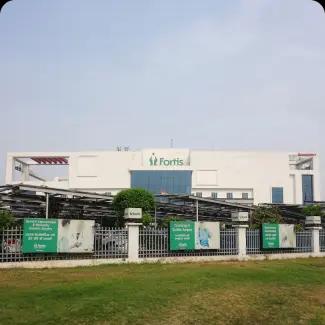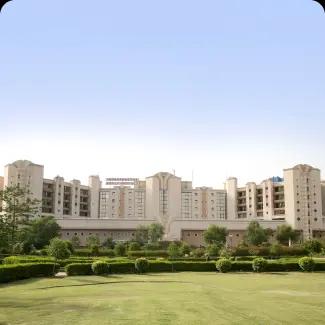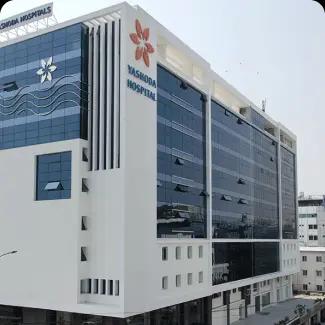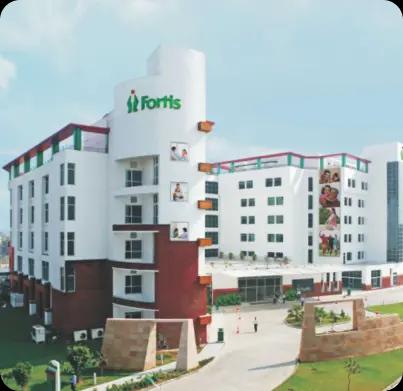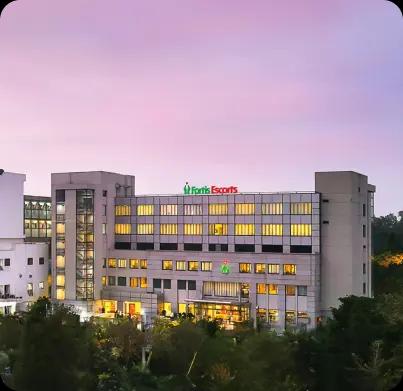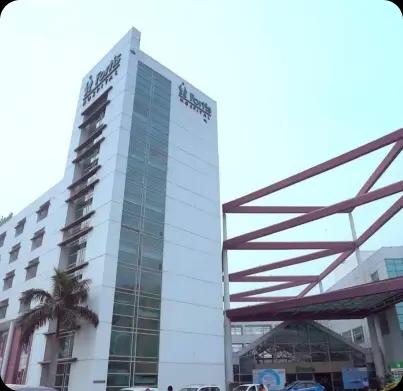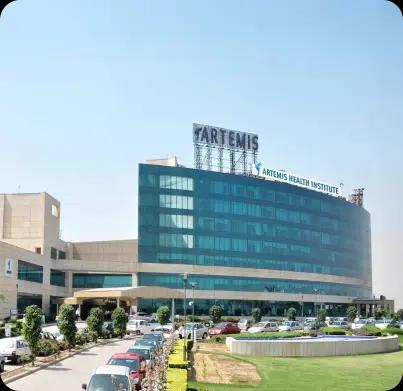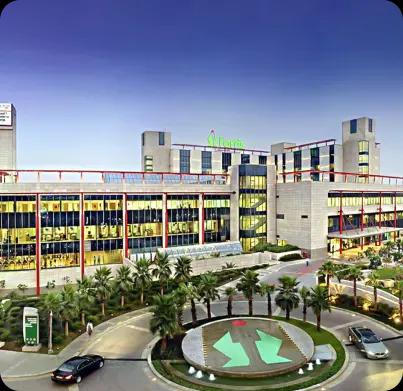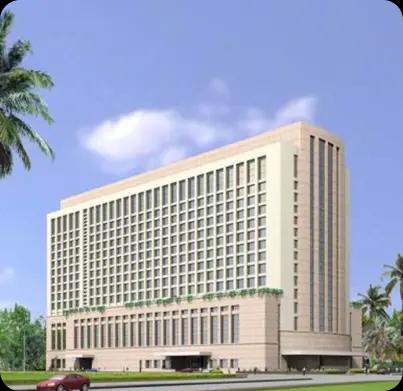
Endoscopic Retrograde Cholangiopancreatography (ERCP)
ERCP is a procedure combining endoscopy and X-ray to diagnose and treat bile duct and pancreatic issues. After sedation, a flexible tube with a camera is inserted through the mouth to examine these structures. Interventional procedures like stone removal or stent placement can be done. Risks include pancreatitis and infection, but complications are rare.
Free Pick up and Drop
No Cost EMI
Post Surgery Care
ERCP is a procedure combining endoscopy and X-ray to diagnose and treat bile duct and pancreatic issues. After sedation, a flexible tube with a camera is inserted through the mouth to examine these structures. Interventional procedures like stone removal or stent placement can be done. Risks include pancreatitis and infection, but complications are rare.
Symptoms Of Endoscopic Retrograde Cholangiopancreatography (ERCP)
Symptoms
Types of conditions
There are six main types of Endoscopic Retrograde Cholangiopancreatography (ERCP)
Gallstone Removal
Stent Placement
Dilation
Biopsy
Tumor Ablation
Sphincterotomy
Gallstone Removal
Stones blocking bile ducts can be extracted during ERCP using specialized tools or through mechanical lithotripsy.
Types of condition
- Gallstones: Stones in the gallbladder or bile ducts can cause blockages and lead to symptoms such as jaundice, abdominal pain, and pancreatitis.
- Bile Duct Stones: These are stones that form in the bile ducts, potentially causing obstructive jaundice or acute cholangitis.
- Bile Duct Strictures: Narrowing of the bile ducts due to inflammation, scarring, or tumors can impair bile flow and lead to jaundice or bile duct obstruction.
- Pancreatic Diseases: Conditions affecting the pancreas, such as pancreatitis, pancreatic tumors, or pancreatic divisum (a congenital anomaly), may require ERCP for diagnosis or treatment.
- Biliary or Pancreatic Tumors: ERCP can aid in diagnosing tumors in the bile ducts or pancreas and may be used for palliative interventions like stent placement to relieve obstruction.
- Sphincter of Oddi Dysfunction: Dysfunction of the sphincter muscles controlling bile and pancreatic duct openings can lead to recurrent abdominal pain and may require therapeutic intervention during ERCP.
Diagnosis
ERCP is used for the diagnosis of conditions such as gallstones, bile duct stones, strictures, pancreatic diseases, tumors in the bile ducts or pancreas, and sphincter of Oddi dysfunction. It allows for visualization of the bile ducts and pancreas, as well as the collection of tissue samples for biopsy.
Causes/ Risk Factors
- Gallstones: Mainly cholesterol or bilirubin stones forming in the gallbladder or bile ducts due to imbalances in bile composition.
- Pancreatitis: Can be triggered by gallstones, alcohol consumption, certain medications, or high triglyceride levels, leading to inflammation of the pancreas.
- Biliary Strictures: Result from conditions like chronic inflammation (e.g., primary sclerosing cholangitis), bile duct injury, or previous surgeries.
- Pancreatic Cancer: Risk factors include smoking, chronic pancreatitis, obesity, family history, and certain genetic syndromes.
- Sphincter of Oddi Dysfunction: Dysfunction of the sphincter muscles controlling bile and pancreatic duct openings, often idiopathic but may be associated with previous surgeries or inflammatory conditions.
- Tumors in Bile Ducts or Pancreas: Factors include chronic inflammation (e.g., primary sclerosing cholangitis), bile duct cysts, liver fluke infections, and exposure to certain chemicals or toxins.
Preparing for surgery
- Medical Evaluation: Your healthcare provider will assess your overall health, review your medical history, and conduct any necessary tests to ensure you're fit for surgery.
- Discussion of Risks and Benefits: Your doctor will explain the procedure, potential risks, and expected outcomes. It's essential to ask any questions you have and understand what to expect.
- Medication Adjustments: Inform your doctor about any medications you're taking, including over-the-counter drugs and supplements. You may need to adjust certain medications before surgery, especially blood thinners.
- Fasting: Typically, you'll be instructed not to eat or drink anything for several hours before the procedure to ensure your stomach is empty, reducing the risk of complications during sedation.
- Arrange Transportation: Since you'll likely receive sedation for the procedure, you'll need someone to drive you home afterward. Arrange for transportation in advance.
- Follow Preoperative Instructions: Your healthcare provider will provide specific instructions on how to prepare for the procedure, including any special dietary restrictions or bowel preparation if necessary.
- Mental Preparation: Surgery can be stressful, so take time to relax and mentally prepare yourself. Engage in activities that help reduce stress and anxiety, such as deep breathing exercises or meditation.
- Arrange Support: Arrange for someone to accompany you to the hospital and provide support during your recovery.
- Follow-up Care: Understand the postoperative care plan, including any restrictions on activities and medications. Follow your doctor's instructions carefully for optimal recovery.
Treatment details
Types
- Gallstone Removal: Using specialized tools, gallstones blocking bile ducts can be extracted during the ERCP procedure.
- Stent Placement: Stents may be inserted into narrowed bile ducts or pancreatic ducts to keep them open, facilitating proper drainage and preventing complications.
- Dilation: Narrowed areas (strictures) within the ducts can be widened using balloon dilation during the ERCP procedure.
- Biopsy: Tissue samples can be obtained for pathological examination to diagnose conditions such as cancer or inflammation accurately.
- Tumor Ablation: Techniques like radiofrequency ablation or photodynamic therapy can be used to destroy tumors or precancerous lesions found during ERCP.
- Sphincterotomy: Incision of the sphincter muscle controlling bile and pancreatic duct openings may be performed to improve drainage and alleviate symptoms.
Technology used/ Facilities available
- Advanced Endoscopy Suites: Equipped with state-of-the-art endoscopic equipment, including high-definition scopes and fluoroscopy units for precise visualization.
- Fluoroscopy Machines: Essential for real-time X-ray imaging during the ERCP procedure to guide the placement of instruments and monitor interventions.
- Endoscopic Ultrasound (EUS): Some centers offer EUS-guided interventions in conjunction with ERCP, providing additional diagnostic and therapeutic capabilities.
- Therapeutic Accessories: Facilities stock a range of specialized tools and accessories for gallstone removal, stent placement, dilation, biopsy, and tumor ablation.
- Dedicated Medical Staff: Skilled gastroenterologists, interventional endoscopists, nurses, and support staff trained in performing and assisting with ERCP procedures.
- Infection Control Measures: Strict adherence to infection control protocols to minimize the risk of procedure-related infections.
- Sedation and Anesthesia Services: Anesthesia support for patient comfort and safety during sedation for the procedure.
- Post-procedure Care: Facilities provide post-procedure monitoring and supportive care to ensure patient recovery and manage any complications that may arise.
- Emergency Backup: Access to emergency services and critical care facilities in case of unforeseen complications during or after the procedure.
**Recovery **
- Observation: Patients are monitored for a brief period in a recovery area to ensure stability.
- Rest: Rest at home for the remainder of the day following the procedure.
- Diet: Start with clear fluids and gradually advance to a regular diet as tolerated.
- Medications: Follow any prescribed medications for pain or other symptoms as directed.
- Activity: Limit strenuous activities for the first 24 hours and gradually resume normal activities thereafter.
- Hydration: Drink plenty of fluids to stay hydrated, unless otherwise instructed.
- Follow-up: Attend follow-up appointments with the healthcare provider to assess recovery and discuss any concerns.
- Watch for Complications: Be aware of signs of complications such as severe abdominal pain, fever, or jaundice and seek medical attention if they occur.
- Dietary Restrictions: Depending on the procedure's findings, dietary restrictions or modifications may be advised for long-term management.
- Driving: Avoid driving or operating heavy machinery on the day of the procedure due to sedation effects.
Your journey to good health begins here

Accredited Hospitals
Nationally accredited hospitals for high-quality care

Multi-language Support
Convey your needs in the language you're most comfortable in

Travel Booking Assistance
Seamless booking assistance for your healthcare journey

Personalised Treatment Plans
A treatment journey tailored to all your preferences and needs

Unparalleled Hospitality
Experience exceptional hospitality during your stay

Easy Medical Visa Approvals
Dedicated assistance for medical visa requirements
Plan your healthcare journey with Karetrip!
India’s Best Hospitals are Partnered With Karetrip
Access World-Class facilities from top Hospitals across India
Consult with India’s most experienced doctors
Experience premium care from India’s leading specialists

Dr. Mahesh Goenka
Gastroenterologist
36+ Years Of Experience
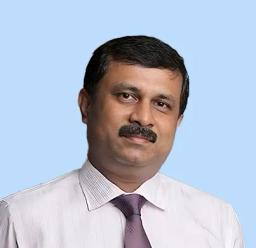
Dr. Prakash K
Gastrointestinal Surgeon
18+ Years Of Experience

Dr. Surendran R
Gastrointestinal Surgeon
49+ Years Of Experience

Dr. Aruna Bhave
Medical Gastroenterologist
38+ Years Of Experience

Dr. Pawan Rawal
Gastroenterologist
15+ Years Of Experience

Dr. Ajay Bhalla
Gastroenterologist
30+ Years Of Experience
Cost Estimation
Learn about the expenses involved in the procedure and what factors affect them.

Estimating the cost of surgery involves several factors, including the type of procedure, hospital fees, surgeon's charges, and additional expenses such as anesthesia and post-operative care. Costs can vary widely based on location and the complexity of the surgery. It's essential to consult with healthcare providers, discuss insurance coverage, and inquire about potential out-of-pocket expenses to ensure a comprehensive understanding of the financial aspects associated with the surgical procedure.
The average cost of the Endoscopic Retrograde Cholangiopancreatography (ERCP) in India is around ₹ 8,000 to ₹ 30,000.

₹ 30,000
High Cost
₹ 15,000
Average Cost
₹ 8,000
Low Cost
The LIST of AVERAGE COST of the Endoscopic Retrograde Cholangiopancreatography (ERCP) across TOP 10 cities in India in Indian Rupee (INR) is as follows :
City
Lowest Cost
Average Cost
Highest Cost
Delhi/NCR
₹15,000
₹20,000
₹30,000
Maharashtra
₹12,000
₹20,000
₹25,000
Tamil Nadu
₹10,000
₹15,000
₹20,000
Karnataka
₹10,000
₹15,000
₹20,000
Telangana
₹10,000
₹15,000
₹20,000
West Bengal
₹8,000
₹11,000
₹15,000
Gujarat
₹8,000
₹11,000
₹15,000
Rajasthan
₹8,000
₹11,000
₹15,000
Punjab
₹8,000
₹11,000
₹15,000
Kerala
₹8,000
₹11,000
₹15,000
Commonly Asked Questions
What is Endoscopic Retrograde Cholangiopancreatography (ERCP) ?
ERCP is a procedure combining endoscopy and X-ray to diagnose and treat bile duct and pancreatic issues. After sedation, a flexible tube with a camera is inserted through the mouth to examine these structures.
What symptoms might indicate the need for an ERCP procedure?
Symptoms for the need of an ERCP procedure are abdominal pain, jaundice, digestive issues, pale stools & dark urine and unexplained weight loss.
What conditions or diseases can be diagnosed or treated using ERCP?
The conditions or diseases that can be diagnosed or treated using ERCP are Gallstones, Bile Duct Stones, Bile Duct Strictures, Pancreatic Diseases and Biliary or Pancreatic Tumors.
What are the different treatment options available following an ERCP procedure?
The different treatment options available following an ERCP procedure are Gallstone Removal, Stent Placement, Dilation, Biopsy, Tumor Ablation and Sphincterotomy.
What advanced technologies or techniques are available for performing this surgery?
The technologies or techniques available for performing this surgery are Advanced Endoscopy Suites, Fluoroscopy Machines, Endoscopic Ultrasound (EUS), Therapeutic Accessories, Dedicated Medical Staff, Infection Control Measures, Sedation and Anesthesia Services.

Do you still have a query?


"I had a successful surgery at Fortis Escorts Hospital, and it was all thanks to Karetrip's help in finding the right hospital for me. The entire process was smooth and stress-free, with Karetrip handling all the arrangements and answering any questions I had. The medical team at the hospital was outstanding, and the facilities were top-notch. I highly recommend Karetrip to anyone looking for a tension-free healthcare experience."
Read MoreFatima
Chattogram


"Thanks to Karetrip, I got connected with MAX Hospital in New Delhi. The team guided me through every step – from finding the right doctor to handling travel and visas. They made a daunting process feel like a breeze. The care I received at MAX Hospital was outstanding, and I can't thank Karetrip enough for making it possible. They truly put patients first and go the extra mile to ensure a smooth healthcare journey. I'm grateful beyond words!"
Read MoreHasan
Dhaka


"At first, I was unsure about having a medical procedure done in a foreign country. However, Karetrip's team at Indraprastha Apollo Hospital made me feel much better. The hospital was very clean, modern, and had everything they needed to help me. The staff were very kind and did everything they could to make me feel comfortable. I'm really happy with how my treatment turned out, and I appreciate Karetrip for making it easy and stress-free."
Read MoreImran
Sylhet
 Google Reviews4.9/5
Google Reviews4.9/5




I had a successful surgery at Fortis Escorts Hospital, and it was all thanks to Karetrip's help in finding the right hospital for me. The entire process was smooth and stress-free, with Karetrip handling all the arrangements and answering any questions I had. The medical team at the hospital was outstanding, and the facilities were top-notch. I highly recommend Karetrip to anyone looking for a tension-free healthcare experience.
Fatima
Chattogram
 Google Reviews4.9/5
Google Reviews4.9/5




